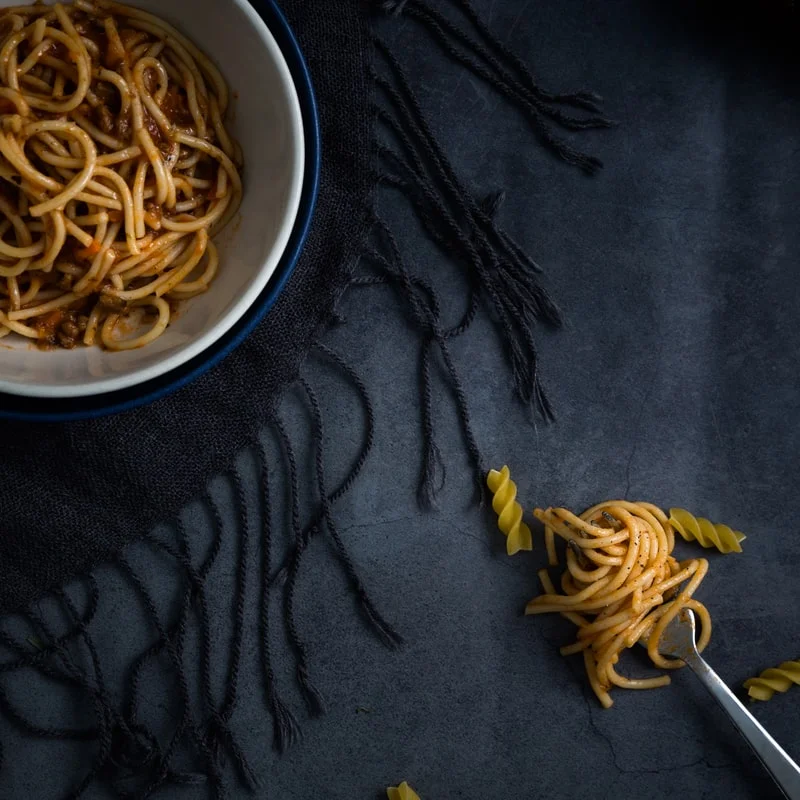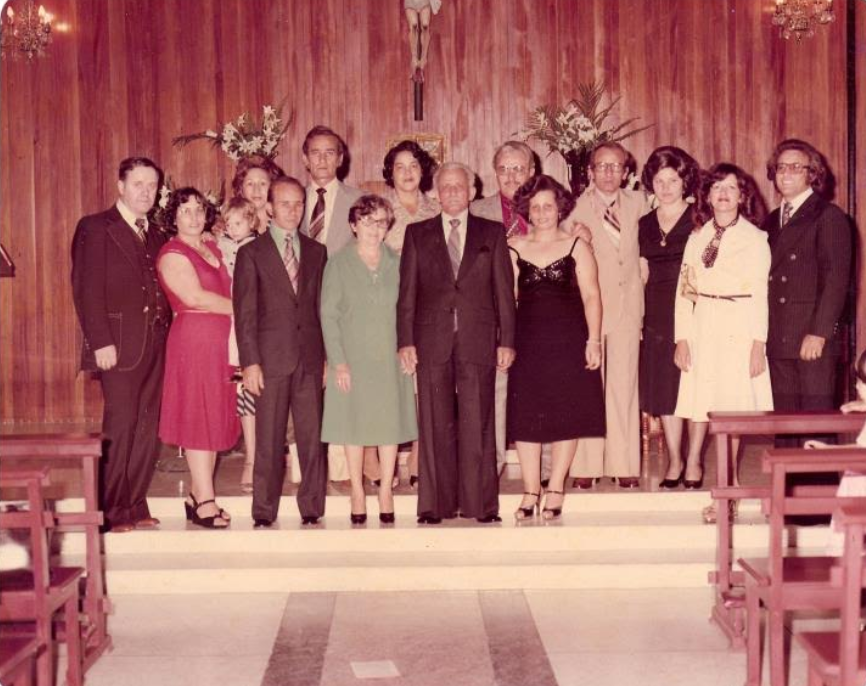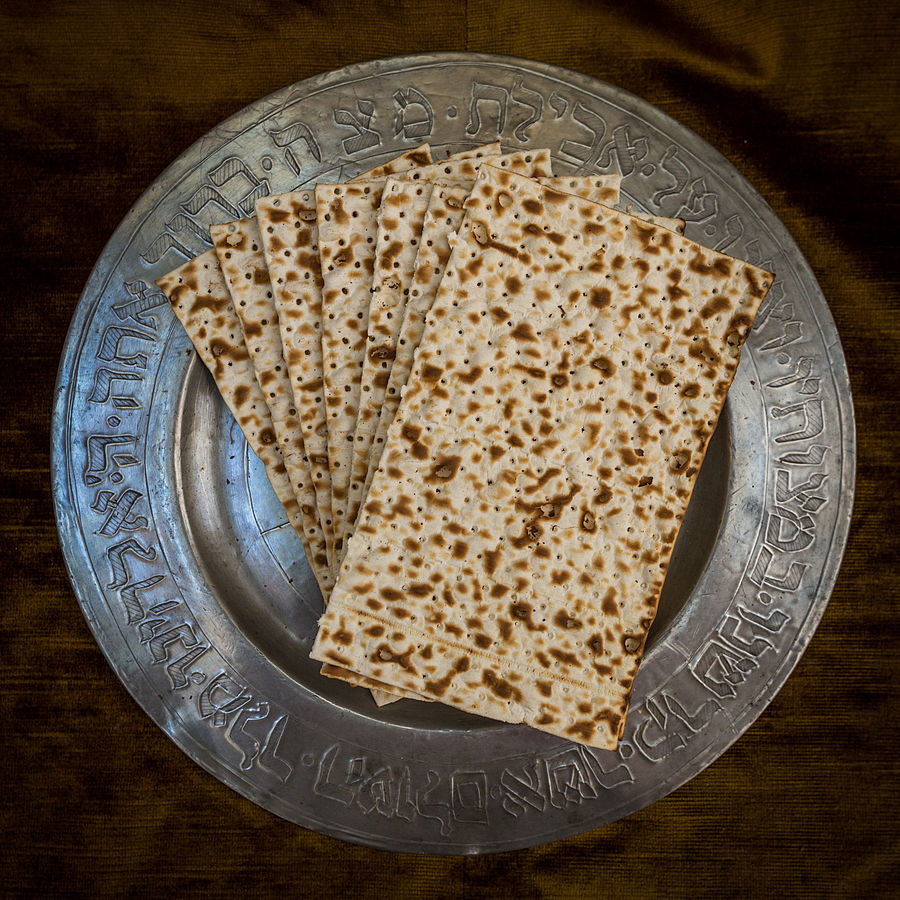Encountering Interfaith Hospitality in Venezuela
You Don’t Like Pasta?
by Ruth Broyde Sharone
Many years ago, when I was a young journalist in my 20s, traveling solo in Latin America, I spent eighteen months in nineteen countries and visited 54 cities. I was studying and writing articles about the Jewish communities as I made my way south from Mexico, traveling through all of Central America, and then traversing the length and breadth of South America.
Newspaper clipping of my journey in Brazil
Evidence of Roman Catholic practice was prominent everywhere I traveled and provided an important backdrop for my early interfaith education outside of the US. A few days before Easter, after three months of travel within Brazil, I flew to Belem, a city in the north known as the gateway to the Amazon River, where I planned to spend two to three days. Within hours of my arrival, a local journalist advised me not to stay because everything was about to close and there would be no other inbound or outbound flights for a week. All government offices, museums, stores – the entire city – would be closed for Holy Week, and the only possible activity for me outside of being in my hotel would be to view a Spanish-dubbed version of The Greatest Story Ever Told, chronicling the life and ministry of Jesus, at the one and only local cinema.
I never even unpacked my suitcase. I took a taxi to the airport and managed to grab the last flight of the day to Venezuela before the blackout week began.
My seatmate on the plane was Pierre, a tall, ruddy man with a full head of thick white hair – somewhere in his late fifties, I calculated, and certainly old enough to be my father. He proudly laid out his border-crosser credentials. He was born in Italy, had a French passport, and he was the owner of a Brazilian soccer team. In fact, he was on his way to Caracas, the capital of Venezuela, because his team was about to play a crucial game that would determine if they were eligible for the finals. His team and his wife were already there, waiting for him to arrive.
He then quizzed me at length about my mission. What was I doing, traveling in Latin America as a young, unaccompanied woman? He expressed great concern that I would be arriving in Venezuela at a time that was considered especially dangerous for tourists. Where will you be staying?” he wanted to know. “Do you know anybody there? Will anyone meet you at the airport?”
I was expecting to be met by a Jewish family in Caracas, with whom I believed I would be celebrating the first night of Passover. An international Jewish organization in Washington, D.C. had arranged for us to meet, and I had written to the family a month earlier to let them know of my arrival date. I had their name and phone number, I told Pierre, but he was still very concerned. “I’ll wait for you at the airport until you reach them. You can’t be on your own here, not now in the current climate.”
We arrived in Caracas and, as promised, Pierre waited to see if someone had come to receive me at the airport. No one did. I tried several times to reach the family or any of my other Jewish contacts by phone. No luck.
Pierre hailed a taxi and instructed the driver to take us to his hotel. He then asked me to wait in the lobby before going to the reception desk to check in. I was very grateful to have him take me under his wing and only later did I discover he had paid for my first night at the hotel. He also left me a ticket for the soccer game and a box of Italian “Bacci” chocolates.
I went to my room and sat on the edge of my bed to consider my options. I remember feeling forlorn and conflicted. It was Passover, but I had nowhere to go. It was beginning to sink in that I would not be celebrating an important Jewish holiday for the first time in my life. To comfort myself, I ate one of the Bacci chocolates. I decided to attend the soccer game as a symbolic way of thanking Pierre for his kindness, even if I would never see him again.
Still unable to reach any of my Jewish contacts, that night at the soccer game I threw caution to the wind and accepted an impromptu invitation to visit the home town of two brothers I met, Antonio and Giuseppe, who lived in Barquisimeto, a city in the interior of Venezuela. We drove in the middle of the night for five hours so I could meet their family, all originally from Sicily. Antonio also wanted to introduce me to a friend of his from the American Peace Corps.
Catholic Venezuelan family, originally from Sicily, that hosted me during Passover
We arrived exhausted. They installed me in a spare bedroom in their family home where I slept for a few hours. In the late afternoon they knocked on my door and invited me to join them for the main meal. I washed up, entered the dining room, and took the only empty chair at the large round table. All together there were nine of us. Antonio introduced me to each of his siblings and his parents, using a Sicilian dialect to communicate with his parents.
I looked around their modest home. Everything was spotless, but aside from their furniture they had only one piece of art, located in the dining room. It was as large as a portrait from an art gallery, dwarfing everything else in the room and it faced me, directly above the heads of Antonio’s parents. It was impossible to be present in the room and not be aware of this painting, especially for me, because it was a larger-than-life painting of Jesus. He seemed to be looking directly at me.
I swallowed hard.
Antonio’s mother began to serve the meal. She passed out pasta to everyone at the table because, as in every good Italian family, pasta is always served at the main meal. I watched everyone else as they began to eat their pasta, but I didn't raise my fork. I was in an interfaith quandary. They didn't know I was Jewish and they couldn't know that I was forbidden to eat anything that had leavening in it for eight days, a Passover custom I had been keeping since I was a child, no matter where I was. That meant not eating bread, crackers, or pasta. But how could I refuse their hospitality and la Mama's pasta? What should I say?
Antonio’s mother noticed my discomfort.
“Non ti piace la pasta?” (Don’t you like pasta?) she asked worriedly, fearing that her cooking had not met with my approval.
I looked over at Antonio, his fork in mid-air. I consulted with him briefly in Spanish, and explained to him that I couldn’t eat pasta during the holiday of Passover because it was forbidden. He translated that to his mother, a devout Catholic who attended mass every day of her life. She looked at me very carefully, her eyes regarding me in a new way when he told her I was Jewish. Then, in perfect Spanish, she said:
"Oh, yes, the Jews are the ones who don’t believe in God."
During eighteen months of traveling in a predominantly Roman Catholic continent, I had gone from refusing pork from a young Peruvian boy who told me that we Jews had killed God … and now to a Sicilian woman in a small town in Venezuela telling me we Jews didn’t believe in God.
But this time I was a little older, a little wiser.
“Oh, no, on the contrary,” I told her and asked Antonio to translate in Sicilian to be sure that she would understand my words.
Matzah – Photo: Wikimedia
“We very much believe in God." I paused to point to the huge portrait on the wall. "In fact, Jesus was a Jew. The Last Supper was the celebration of Passover, the same holiday that I am celebrating tonight. And Jesus didn’t eat pasta or any bread that night either. He ate Matzah, flat bread.”
His mother listened attentively as Antonio translated everything I said, word for word.
We all waited for her reply. The air was heavy with uneasiness. I searched the faces of Antonio’s siblings for clues about what la Mama might say. I noticed that their mouths were all slightly parted anticipating her response.
“Well, can you eat chicken?” she asked me solicitously, wanting to make sure that no guest of hers would leave the table hungry.
“Yes, I can eat chicken,” I replied, and I heard a collective sigh of relief around the table.
No one spoke again until I swallowed my first bite of chicken.
Interfaith hospitality had saved the day.
The above story is a condensed version of Chapter 2 from Ruth’s interfaith memoir, Minefields & Miracles: Why God and Allah Need to Talk.
Header Photo: Unsplash





